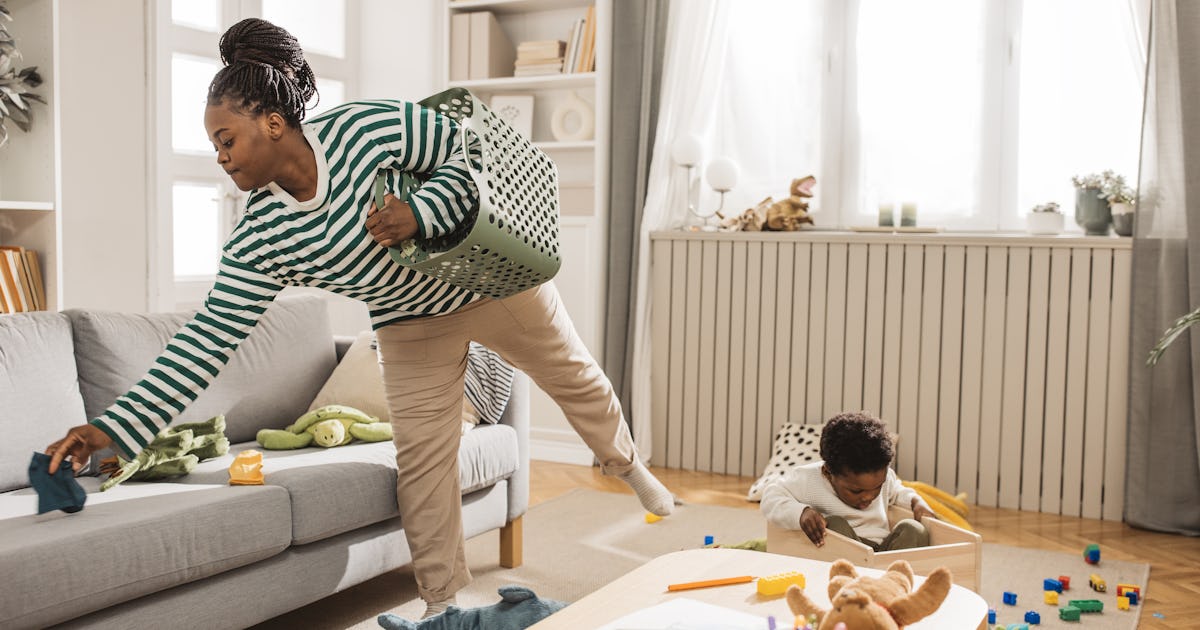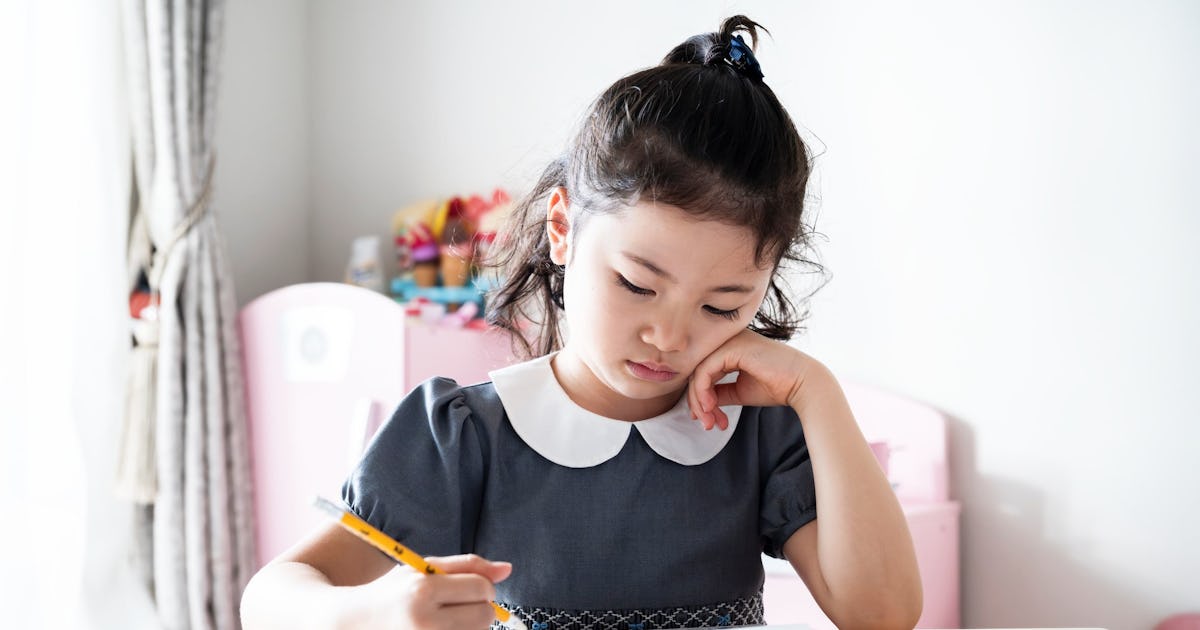Raising kids isn’t easy, period. Obviously, raising an entire child is no task for the weak, but add in the invisible chores…yeah, a lot. And, moms, if you have a sneaking suspicion that this is more work for you than dad, it turns out you’re not wrong.
A new study published in Marriage and Family Magazine Honestly, this proves what you already knew: Moms bear much of the mental burden of their families. Researchers from the Universities of Bath and Melbourne found that mothers performed 71 per cent of the “cognitive housework”, while fathers performed only 45 per cent.
“This kind of work is often invisible, but it’s important,” explains Dr. Ana Catalano Weeks, one of the lead researchers. “It can lead to stress, burnout, and even impact a woman’s career. In many cases, resentment can build up, creating tension between couples.
Researchers surveyed 3,000 parents of children under 18 across the United States, who varied in age, race, ethnicity, education and family structure. Notably, the researchers also included LGBTQ+ and single parents, making the findings relevant across the spectrum of modern families.
The survey asked parents who was responsible for various tasks in different categories at home. First, “everyday” tasks, such as deciding to cook meals and tracking family calendars, require sustained attention. Then there are the “occasional” tasks, such as noting when items like the dishwasher need repair, or researching bank accounts or insurance options.
The survey shows that mothers are responsible for 79% of “daily” tasks, more than twice as many as fathers (37%). While fathers shouldered more “occasional” responsibilities (65%), mothers also shouldered 53% of the tasks.
The overlap in “episodic” tasks suggests that mothers and fathers repeat mental work rather than doing it separately, the researchers said. Even in tasks traditionally held by men, such as managing household finances, both parents tend to take responsibility, and at similar rates, 61% of mothers and 57% of fathers.
This unequal household burden likely extends beyond the home.
“Working mothers are twice as likely as fathers to consider reducing their hours or leaving their jobs due to parental responsibilities, according to Gallup data cited in this study,” the researchers explained. “This suggests that disproportionate mental burdens may be placed on families. impact women’s critical career decisions.”
The research also debunks the myth that women are inherently better parents or more likely to do housework. They found that single mothers and fathers dealt with the mental burden equally, with single fathers taking on more responsibility than partnered fathers.
Researchers also found a cognitive gap between parents. Both parents tend to overestimate their overall share of household responsibilities compared to the percentages shown in the task-by-task breakdown in the survey. However, fathers were more likely than mothers to overestimate the mental burden they bear and were more likely to believe that the mental burden was shared equally, even when this was not the case.
This unequal distribution of psychological burden can and should be addressed in conversations between partners. However, Dr. Catalano Weeks noted that policy changes can be made to help parents achieve more equitable arrangements.
“Looking ahead, the challenge for governments and employers concerned with attracting top talent is how to develop policies that support mothers and fathers sharing unpaid work at home. One policy that comes to mind is well-paid, gender-neutral parental leave – in line with Europe Compared with other countries, the United Kingdom and the United States lag far behind.
Hopefully one day we’ll live in a world where these policy solutions become a reality—but until then, you can send this research report to anyone who dares to suggest that you’re not working hard enough.




